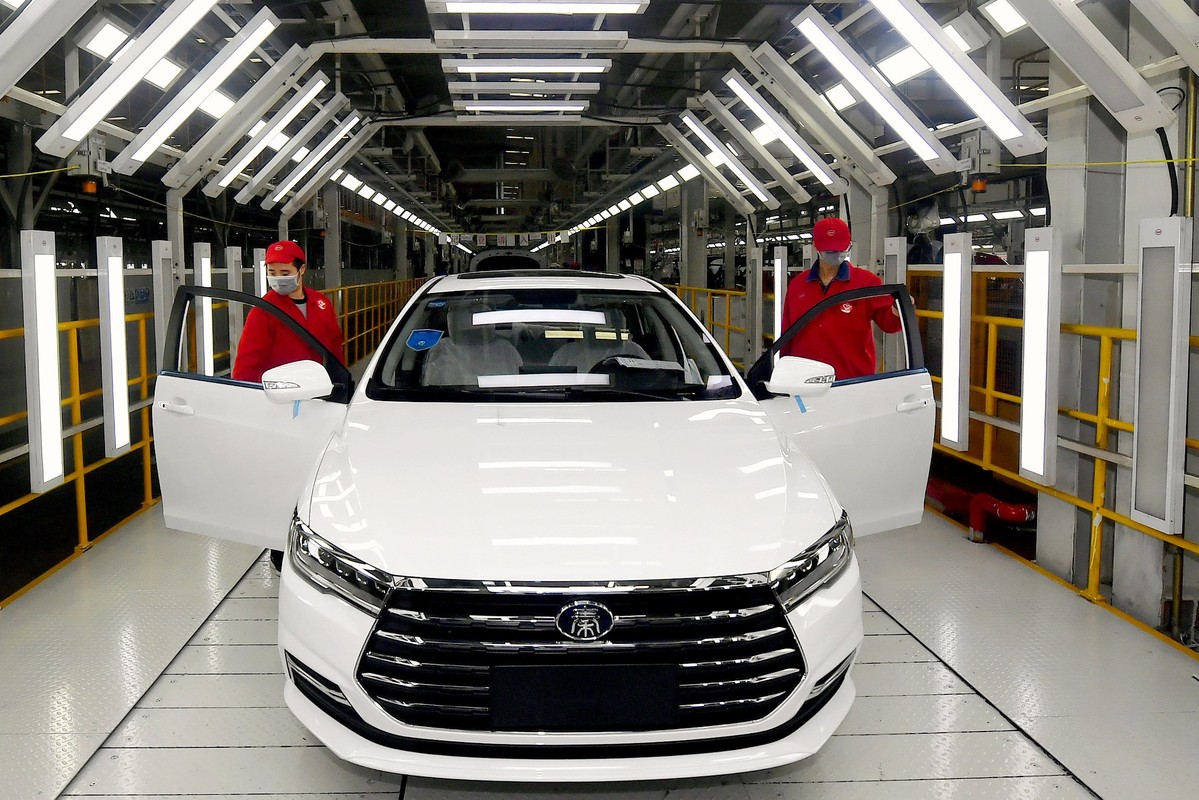Report: Recovery likely for global EV sector


Global sales of electric passenger vehicles are forecast to fall by 18 percent year-on-year to 1.7 million in 2020 as the coronavirus crisis has interrupted the 10 successive years of strong growth.
The long-term prospects for the sector though remain undimmed, with China and Europe continuing to drive the growth of the industry going forward, a report said.
The report issued by Bloomberg's wholly-owned unit BloombergNEF (BNEF) said that although COVID-19 led to a drop in electric passenger vehicle sales so far this year, the influence of the epidemic was smaller compared to the impact of the disease on the sales of combustion engine cars, which are set to drop 23 percent year-on-year.
It said when the epidemic is over, sales of electric vehicles are expected to recover faster than that of combustion engine cars.
China and Europe, which includes the European Union, the United Kingdom, and the European Free Trade Association states, will continue to lead in EV sales. Those countries will take an estimated 72 percent of the world's electric passenger vehicle sales in 2030, BNEF said.
"The unprecedented epidemic brought impacts on the robust growth of EV sales in the world, and the impacts were especially significant on the Chinese and the United States markets. However, starting 2021, there will be an apparent bounce of EV sales in China and Europe," BNEF China research director Kou Nannan said.
Apart from the favorable policies by governments, another important fact is that the sharp fall in oil prices will not have a strong influence on the region's EV sales. Rock bottom prices for oil meant further falls in the price of crude in China and Europe would be limited, he said.
BNEF said that in the future, China and Europe will become the two major destinations where the world's new energy products would go.
Since 2009, the Chinese government has introduced a series of policies in supporting the development of the NEV sector.
The policies include launching NEV pilot zones, taking NEV as a national strategic emerging industry, issuing NEV industrial development plans, and offering tax exemption and subsidies to NEV purchases.
To reduce energy consumption and expand the sales of NEVs, a new scoring system was launched by the Ministry of Industry and Information Technology in September 2017.
Under the system, automakers and importers will be evaluated each year for both fuel consumption of traditional cars and the output of NEVs. If they fail to amass enough credits for either traditional vehicles or NEVs, they may face penalties and their products may not be allowed on the road.
Chinese NEV manufacturers are stepping up efforts to restore sales and maintain sector growth given the challenges posed by COVID-19.
Shenzhen, Guangdong province-based EV maker BYD said the epidemic led to China's overall vehicle sales to decline from January to April. But the company's sales turned out to be better than the industry's overall level.
BYD's marketing spokesperson said sales started to recover in March. In April, overall sales reached 31,000. In the first 10 days in May, the sales volume was 50 percent higher than the same period last year, with EV consumption gradually picking up.
The company expects sales in the second quarter to surge rapidly from the first quarter, and its EV sales for the whole year are expected to remain at roughly the same level as in 2019.
In March, BYD unveiled a new blade-shaped battery which features safety, long life and high mileage. The company said that "Han", a C-Class EV carrying the new blade-shaped battery, is coming in June. The "Han" EV has already received thousands of orders.
BYD said that it is upbeat about China's NEV sector. It plans to devote more resources to technological innovation and better customer service to garner greater market share.
Electric utility providers are also keeping up. State Grid Corp of China announced in April that it would invest 2.7 billion yuan ($383 million) to set up 78,000 charging piles across the country this year. The investment is expected to stimulate NEV consumption by more than 20 billion yuan.
"Charging piles are important infrastructure to safeguard the development of the NEV industry. The investment plays a leading role in boosting NEV consumption during the crucial time of promoting work resumption and restoring economic and social order," National Energy Administration chief economist Guo Zhi said.




































